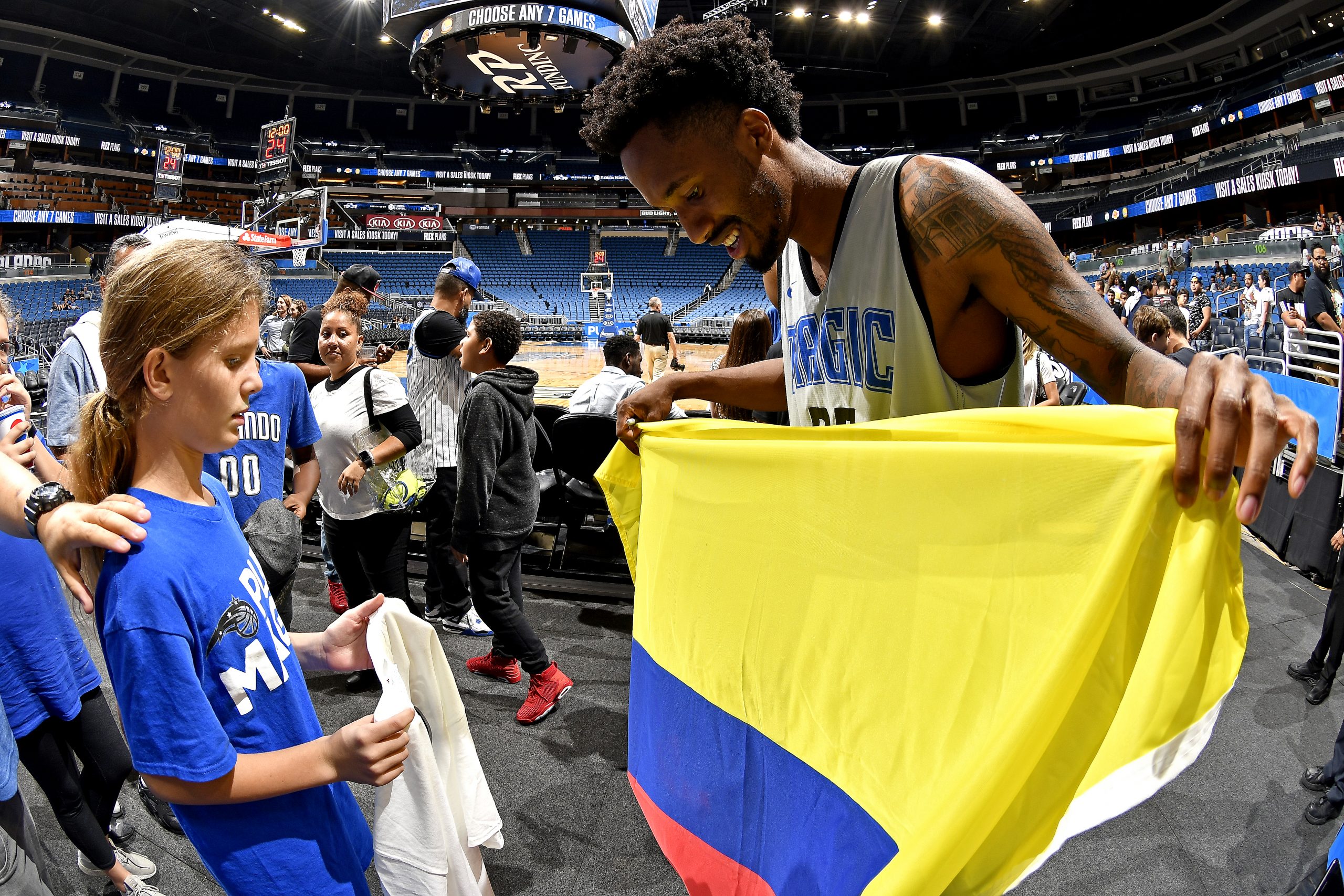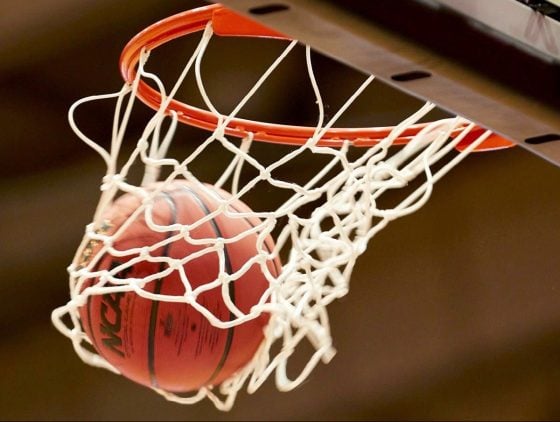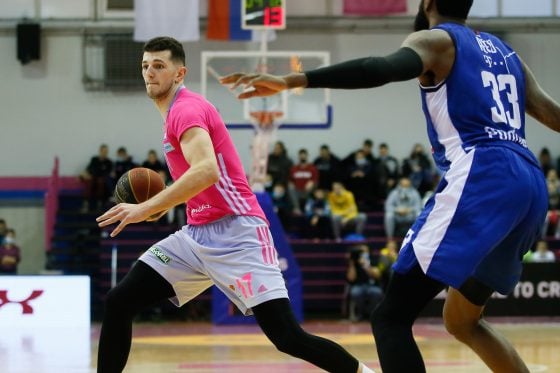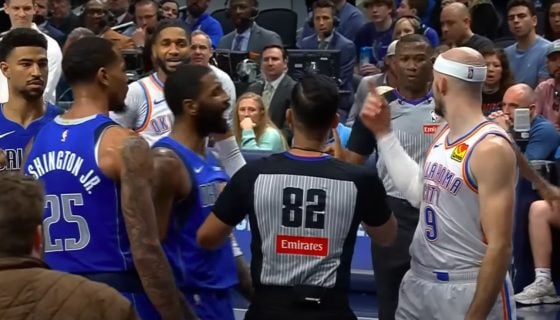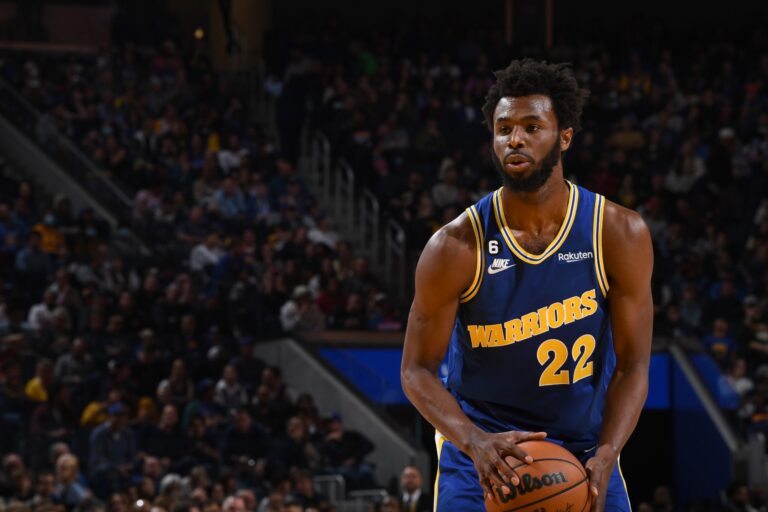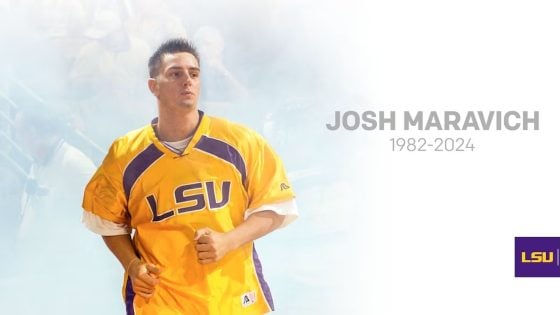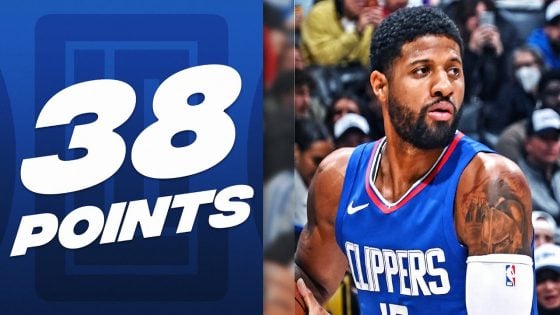The Colombian Hoopers Taking Their Country’s Game to the Next Level
It started out of necessity. That’s how Colombian professional hooper Braian Angola got into sports at a young age growing up in a small town in Colombia. At the time, Angola says, there was a war going on between the rebels and the government, but sports kept him away from trouble—he played everything from volleyball and soccer to track and field and cycling. His father taught swimming, and both of his parents played basketball, but for Angola, basketball wasn’t a sport he’d even considered initially. In Colombia, soccer is the most beloved game—there’s even soccer nets attached to most basketball hoops.
At first, Angola thought the game, compared to soccer, was sorta soft. He first tried playing basketball at 10 years old, but ended up picking up the ball, running with it and being called for a travel. He’d bring his soccer ball to every game and tournament, and during timeouts, he’d start playing soccer on those very same nets.
And yet, coming from a poor family, Angola soon learned that there were opportunities that could come from playing basketball, like getting an education, housing and even food, all provided for.
“Something on my mind I don’t have to pay for,” he’d think to himself.
At 14 years old, Angola then made the decision to move from Colombia all the way to the United States, by himself, to play for then-prep school Findlay Prep in Henderson, Nevada. He went on to suit up for Northern Idaho College after, and now looking back, Angola admits that any money he had at the time, he’d send to his family back home rather than spend it on himself. He would sometimes go long periods of time without eating.
Eventually, the 6-6 guard got the opportunity to play at Florida State, where he averaged 12.5 points during the 2017-18 season, and after going undrafted in 2018, he signed with the Orlando Magic to play with their Lakeland Magic G League squad, making him the first Colombian-born player in the L.
“When I found out that I was going to Orlando, I started crying. You got to think about it, like, when I tell you the stuff that happened in my career, there’s a lot of stuff. I used to eat out of the trash,” he admits over the phone. “So, when I got a call from my agent saying, ‘Hey, you’re going to Orlando, they want to sign you and do Summer League with them,’ I got on my knees and started praying.’”
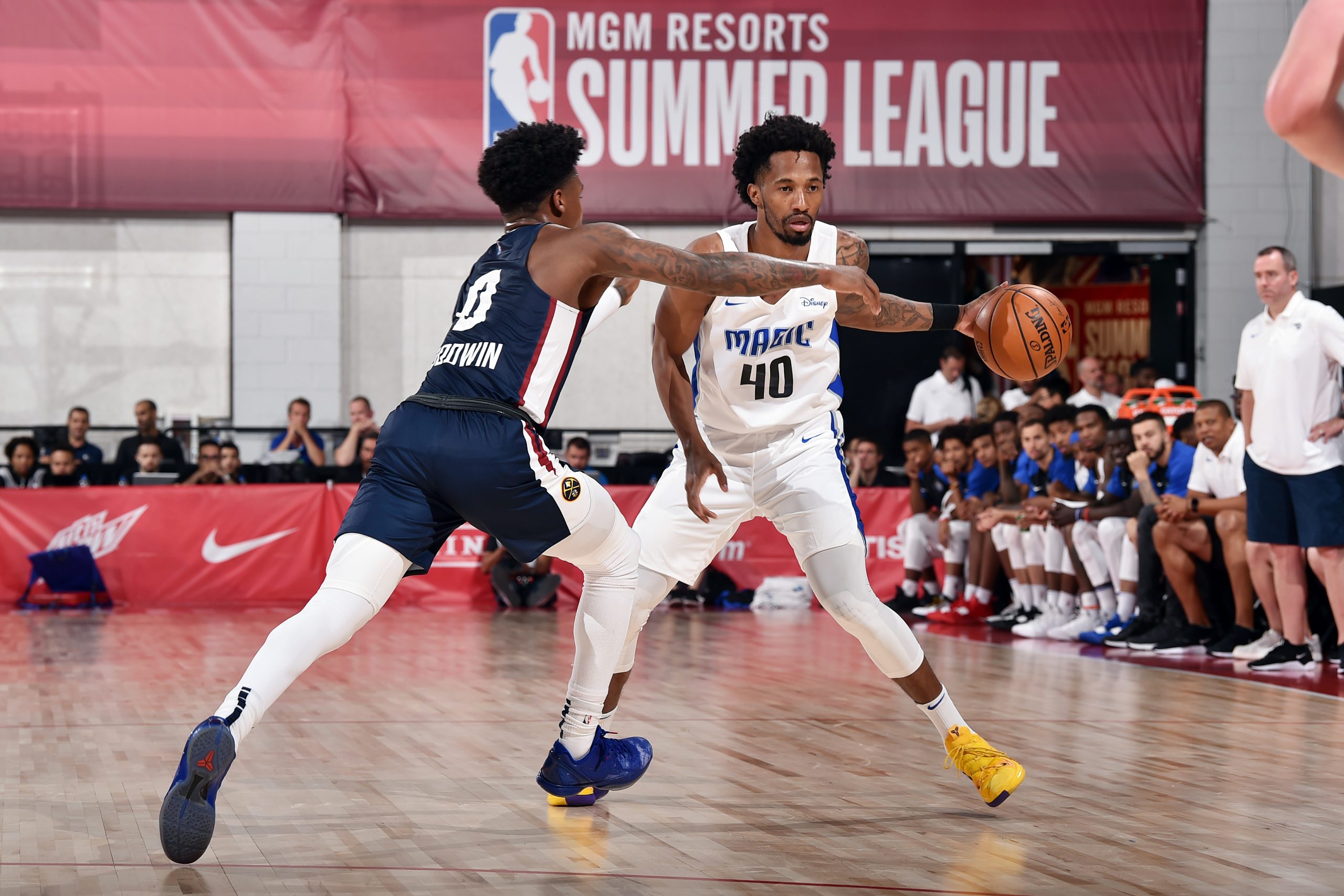
This past August, Angola even got the opportunity to represent his home country in the World Cup Qualifying Round, where he averaged 17.8 points and 2.8 assists for the Colombian National Team.
Angola is just as dedicated to giving back to his community—he has his own foundation in his namesake, and he recently played in the Barrio Basketball League alongside other Colombian national teammates like Romario Roque and Jaime Echenique, who’s currently signed to the G League’s Capital City Go-Go and was called up to the Wizards last season, before they headed off to Brazil to compete in the FIBA World Cup Qualifiers against Chile, Brazil, Mexico and the United States for the very first time.
Founded by SLAM FTW’s Andres Puerta and Jonathan “DJ Yonny” Avila, the Bario Ball League put on for the city of Medellin with a pro-basketball showcase, as well as a basketball clinic for over 200 youth with Jr. Knicks jerseys, as well as bags and other giveaways, all donated by the team.
“Colombia needs to be on the map,” says Puerta over Zoom, later adding: “There needs to be exposure here, they need to have a mentality where it’s just not soccer, and these basketball organizations got to support the talent. Whatever it takes to take it to the next level—because they’ve done it with music, they’ve done it with soccer and these other sports—but there’s [basketball] talent here, [too].”
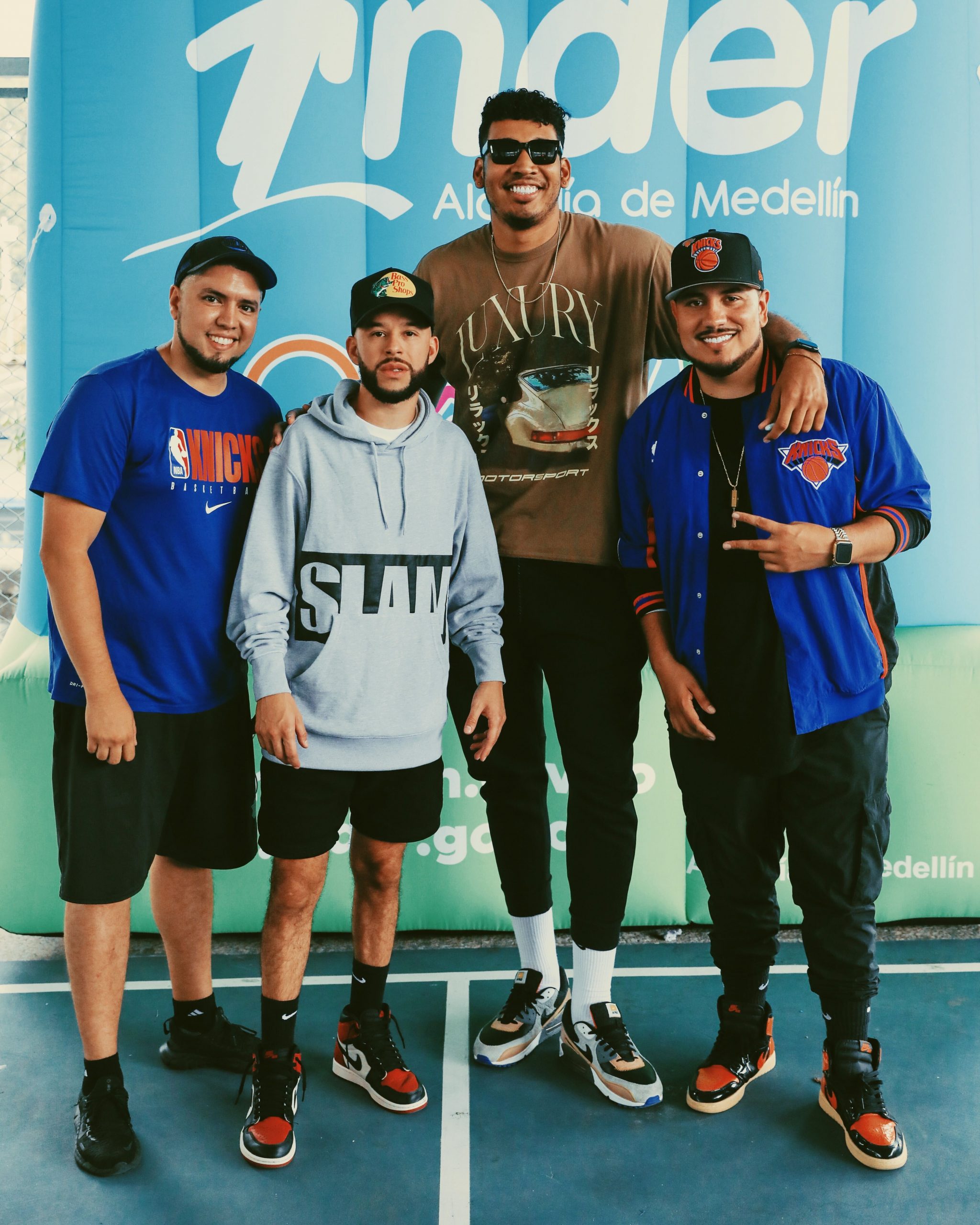
“For us, Barrio Ball is basically basketball from the hood and there’s hoods all over the world,” adds Avila. “So, we want to do that and not only educate and inspire young kids, but take some of these local, unseen talent that the world hasn’t seen, and bring them to light.”
Adds Jonathan Ochoa, manager of fan engagement for the New York Knicks: “Our goal with the Barrio Ball League is to go to communities in need and provide them with the resources to play the game of basketball [and] then source the top local talent and host streetball games to help them garner exposure.”
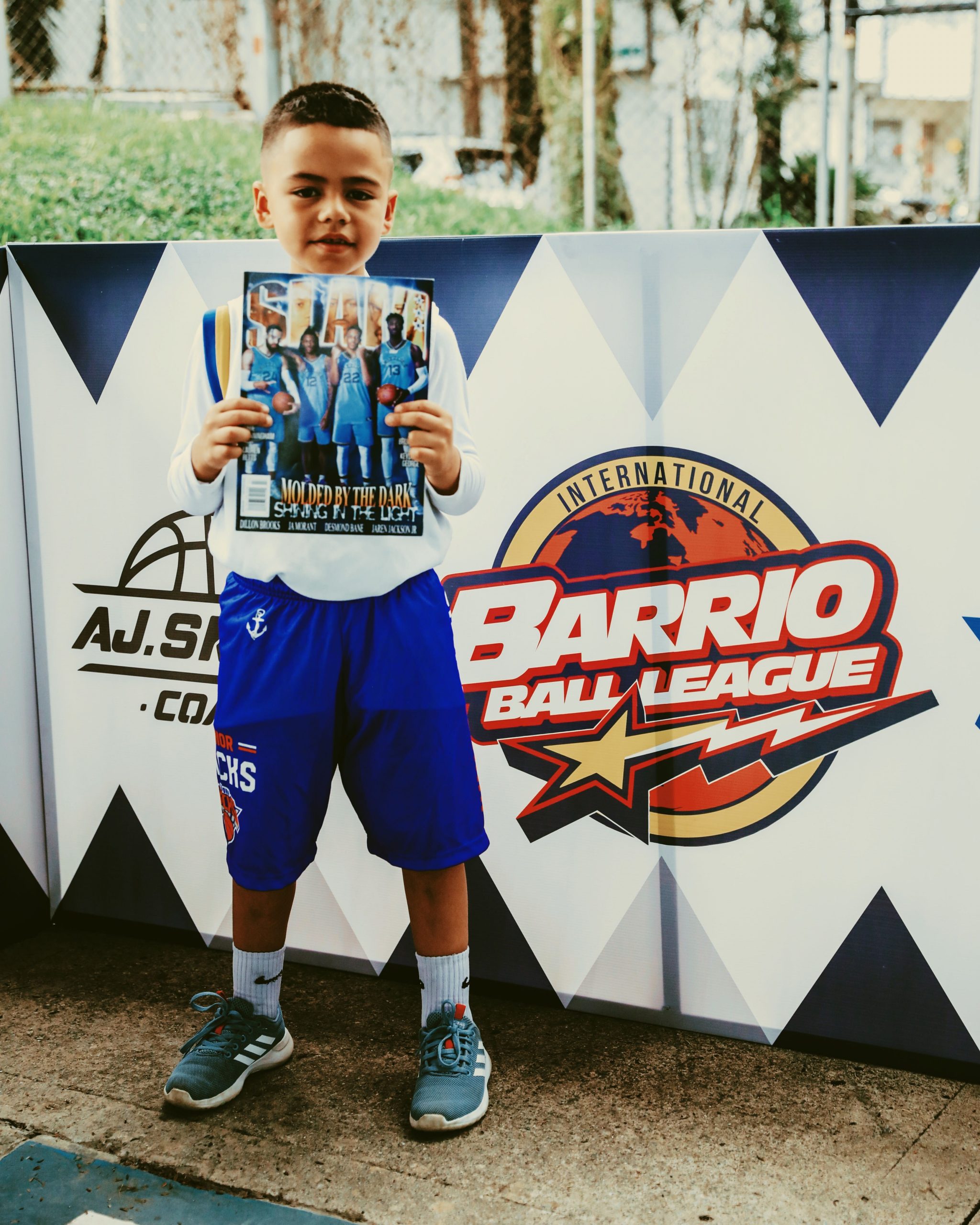
From Angola to Echenique, Roque, Leyder Moreno, the “female LeBron of Colombia” Manuela Rios, Juan Palacios, and elite skills coaches like Alvaro Cortes, who are training the next generation, the talent in Colombia is visible everywhere. It’s time for the rest of the world to finally take notice.
For Jaime Echenique, the reality of being the first player from Colombia to ever suit up in an NBA game didn’t really hit him until a teammate put it all into perspective.
“He said, ‘Okay, think this: in the 75 years of the NBA, there was never a Colombian in the NBA.’ And I said, ‘Okay, yeah, you’re right.’ [He then goes], ‘After all, how much is the population in Colombia?’ I said, 50 million, and he says, ‘You are the first after 50 mil to get to the NBA.’ And I said, ‘Well, you got a point. You got me on that.’ I kind of understood a little bit better,” Echenique says over Zoom.
Echenique’s journey to the NBA started at Trinity Valley Community College, where he arrived on campus speaking barely any English at the time and had to take classes to better his proficiency. His transition on the court was just as challenging—the 6-11 forward still remembers how much he struggled in his first training session there. “Man, oh my God, I remember the first workout, it was horrible.”
During that time, Echenique admits that he didn’t have his sights set on one day making it to the League—instead, he was focused on just trying to get a Division I scholarship. Still, his talent and skill set were enough to earn him a starting spot as a freshman in 26 games, where he averaged 9.2 points. After a consistent sophomore campaign, Echenique committed to Wichita State over offers from programs like Baylor, Cincinnati, Western Kentucky and Illinois.
In Kansas, he averaged another 9.2 points per game and 6 rebounds as a junior, and upped his scoring average to 11.3 points his senior year and earned All-AAC Second Team honors that season. He went on to sign his first pro contract with the Acunsa GBC of the Spanish Liga ACB, where he averaged 12.8 points and 4.6 rebounds a game.
Then the Wizards came calling with an opportunity to compete in the 2021 NBA Summer League. “I was pretty nervous. It was my first time,” he says. “Obviously, I was living the dream, I’m with an NBA team [but] I was missing layups. Literally, the coaches were tired of me. I didn’t think that they would play me…[In] the last five minutes, I was being really vocal, really loud. Doing what I do best and commanding the team, playing good defense and running the court. I think that those kind of [moments had the coaches] like, ‘Huh, he can play.’”
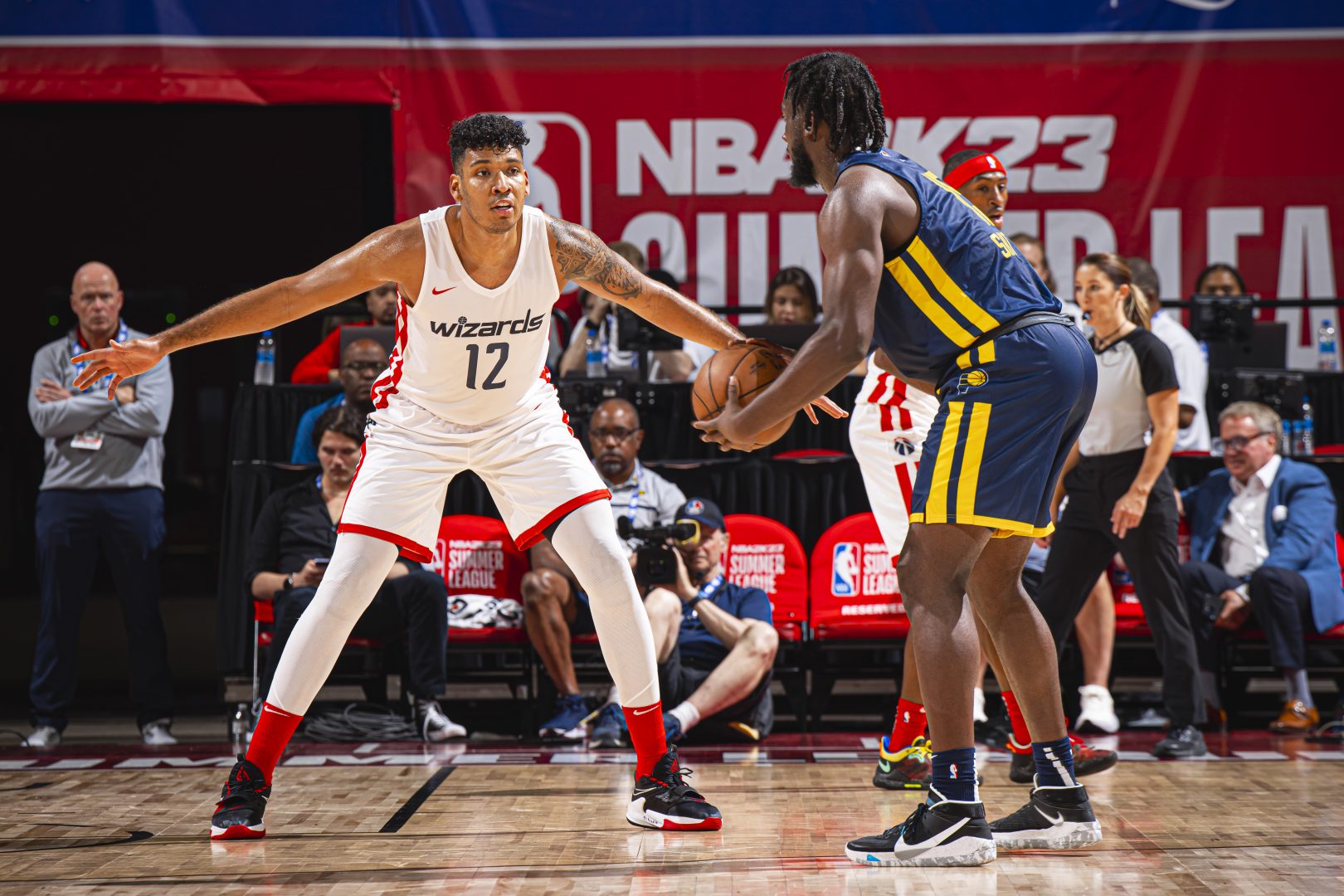
Against Brooklyn, Echenique finally found his rhythm and showed out, dropping 17 points on 6-of-10 shooting. His performances were enough to earn him an invitation to Wizards training camp and soon a 10-day exhibition deal with the team. In October, he signed with the Go-Go as an affiliate player, and by December, he was making his NBA debut against the Cleveland Cavaliers, making NBA history in the process.
But what a lot of people don’t know is that heading into the last game of the G League Showcase, Echenique had sprained his ankle pretty badly. “Nobody knew that. So by the time I got called up, my ankle became swollen. And I told the trainer—sorry for what I’m going to say—tape that b—- up,’” he says now, with a chuckle.
“Then I got into the game and it was an amazing experience. By the time I [got in], I wasn’t thinking I’m about to make history, I was like, let’s get the job done, let’s be focused, communicate. Just do what I do.”
“I think what happened was an appetizer, that was the beginning of something more that helped me to push even further,” he adds. “When I got back to the gym, I was pushing as hard as I could and going [into this year’s] Summer League, I was even pushing to a higher level to understand how to be part of a role, because sometimes the younger guys, including me, [what] we don’t understand is like, we’re trying to impress everybody [and] doing so many things. One of the coaches once told me, ‘When you go to the League, you get paid for maybe one or two good things. That’s all. That’s the main thing that I can focus on.”
Having experienced firsthand the grind of going from playing in Colombia to college, and now the pros, that’s why Echenique says it’s especially important to not only provide more showcases and tournaments for players in Colombia to get more exposure, but to make sure they’re competitive enough to challenge them at the next level.
“The level of competition and the quantity of competition in Colombia has to increase in order to get more exposure. Like, we don’t have AAU tournaments, we don’t have showcases like that. We have a state tournament, maybe national teams, and a select group of [players] can go to those tournaments. So, creating more quantity [of opportunities], with a lot of quality in Colombia will be a huge wake up call for a lot of [teams] overseas—doesn’t matter if it’s in the United States, there’s [also] a lot of European teams [that can] come here and start picking up [players] to go to their [leagues].”
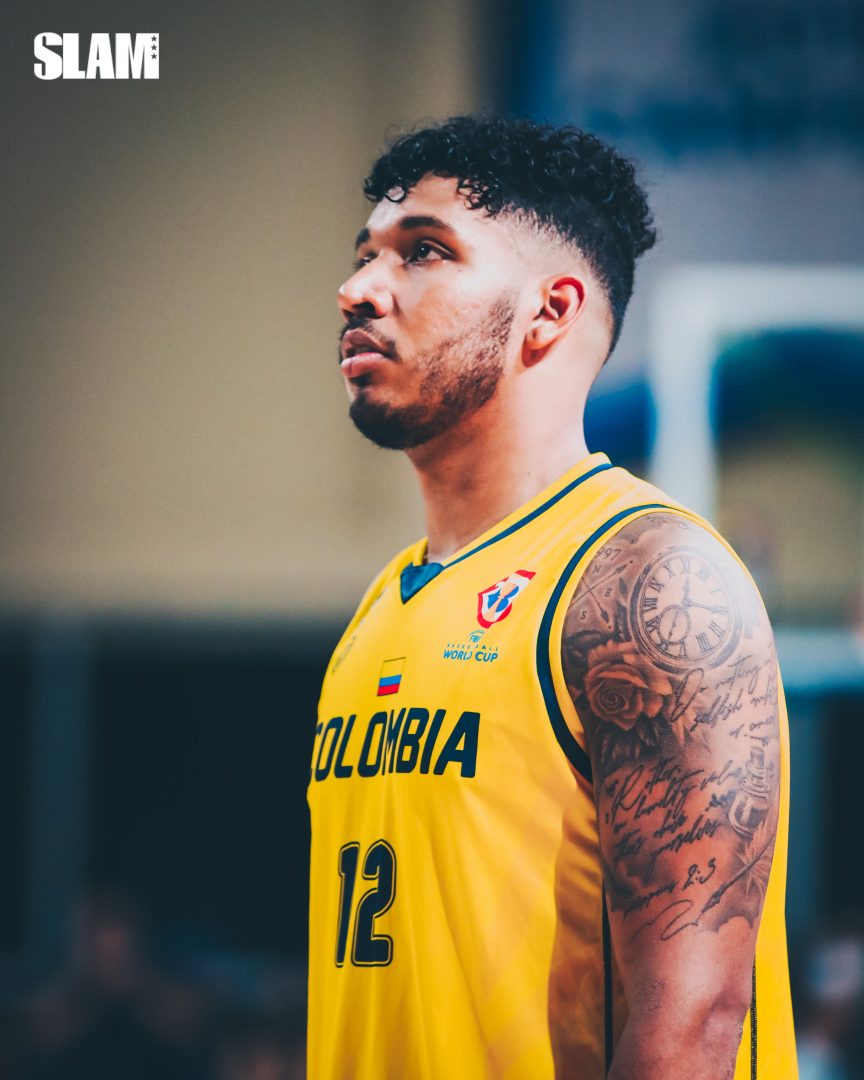
He’s not alone in thinking so. For pro hoopers like Leyder Moreno, who played high school ball at Texas Christian Academy, he wants to not only let people know that soccer isn’t the only sport Colombians are good at, but that they can also hoop at the highest level. “People think we don’t play, but we want to show people there’s basketball in Colombia, ” he says, later adding: “One of my friends, [Jaime Echenique], he made it to the NBA as the first Colombian. We’re proud of him, [and if] he keeps working, he’s going to make it. Everybody’s behind him. He [has] support from the whole country, everybody’s excited to see him and, of course, not just him. Like, why not other players, [too]?”
Romario Roque, the starting point guard for the Colombian National Team, echoes that sentiment while also expressing that the issue at hand is exposure. He admits over Zoom in August, just a few weeks before Colombia is set to play Mexico in the FIBA World Cup qualifier round, that the lack of visibility is one of the reasons why he decided to also take his talents overseas to Switzerland. There, he’s been able to learn how to utilize his skills as a playmaker and get his teammates more involved.
Roque initially played soccer growing up, but around the age of 10, he discovered his love for the game while shooting around on a local court with a friend. Shortly after that, he started watching highlights of streetball games on Youtube and clips of NBA superstars, including the late Kobe Bryant, Russell Westbrook, James Harden and Kyrie Irving.
“[My] dream is to play in the NBA one day but I also understand what it takes to get to the NBA,” Roque admits over the phone, via a translator. “I still have it in mind as one of my goals.”
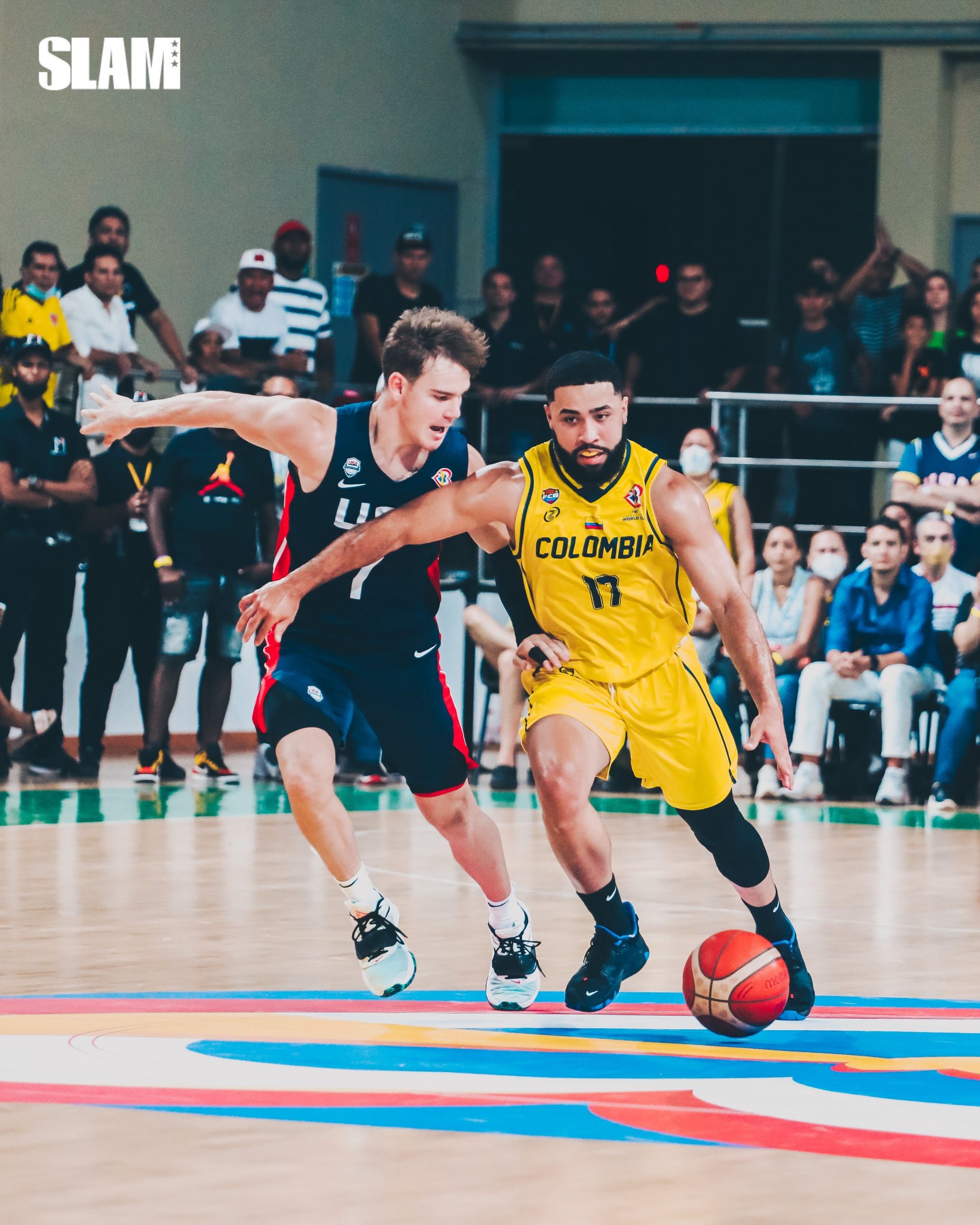
For Roque and teammate Juan Palacios, the chance to compete against Team USA at the FIBA World Cup is an opportunity that can “open doors” and show that not only is Colombia good enough to compete, but to compete against some of the very best.
“It’s a challenge and it’s an opportunity to show that we’re not just lucky,” says Palacios, “but that we’re actually good enough to play against these great teams.”
The game has taken Palacios all around the world—from Colombia to New York at the age of 15 to play at Our Savior New American, where he went on to average 20.2 points per game as a senior in high school, and then eventually to Louisville. Throughout his 13-year career as a pro, he’s played everywhere, including Spain, France, Lithuania and Turkey.
“I think the most important thing is, like they say, the more stronger survive, [but] I believe it’s the most adaptable survive. You know, you can be the strongest but I might be someone stronger or [a] situation stronger that you cannot deal with. But if you are adaptable to every situation, you [are] able to figure out what’s going to work in the place that you are with the coaches that you [have]. My slogan is movement. The more you move, the more you live, and the more experiences you have.”
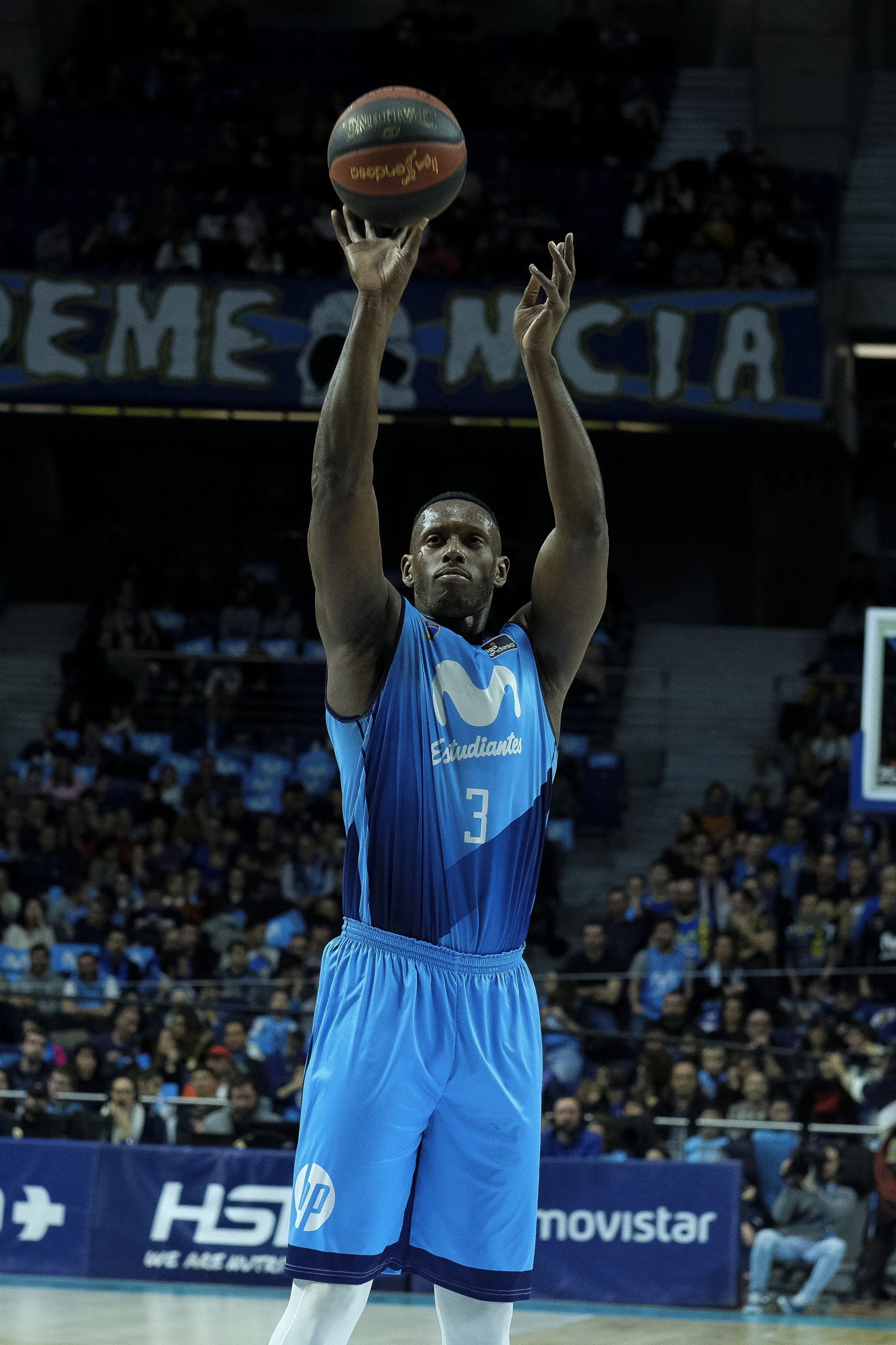
The lack of exposure and coaching expertise available in Colombia is exactly why one of the country’s most prominent trainers, Alvaro Cortes, has dedicated himself to training up and coming players, oftentimes free of charge.
Alvaro’s resume speaks for itself: he’s coached at the high school level, for various programs and basketball clubs, and has worked alongside everyone from Puerto Rican basketball coach Carlos Morales to Drew Hanlen and Michael Lancaster. He’s trained pros from around the world, including Renaldo Balkman, former NBA guard Greivis Vásquez and former West Virginia power forward Devin Williams.
“What I’ve learned from [training in the] United States and all the techniques and offseason workouts that are going on, my dream is to bring that type of basketball knowledge here to Colombia and offer it to the people here and take them to the next level,” Alvaro says via a translator. “My dream and motivation is to one day have my own facility and court to [give back] to the kids that don’t have the resources to one day go to a private gym or or attend some workouts that you need to pay for.
“[I want to] produce more players to [go on and] play in college and in the NBA, not just have Jaime be the only one. I want to produce another Colombian NBA player.”
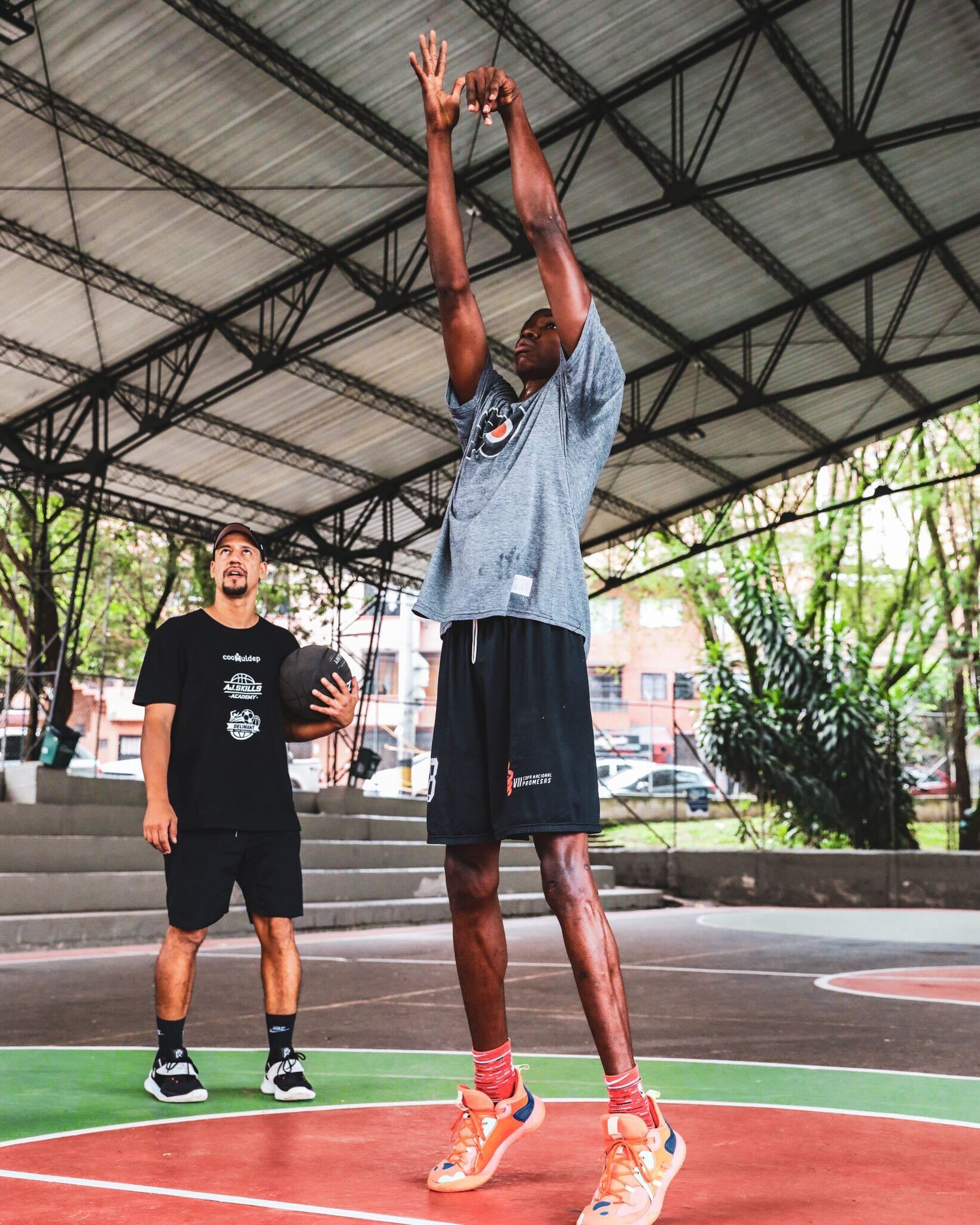
Known as the “Chris Brickley of Colombia,” Alvaro’s day-to-day includes waking up at 4 a.m. and getting through his first training session by 6, followed by two more workouts after that. Then he has another 2-3 workouts throughout the afternoon. One of the players he trains is Samir Viveros who is from Buenaventura, and has been working with him on his defensive game and building up his IQ.
“Everything has changed for me ever since working out with Alvaro,” he says. “My mental game, my physical ability, I’m actually getting the right training.”
And then there are standouts like Rios, who is pioneering the women’s game in Colombia and dominating as the top player in the Americup and the South American Games. In 2019, she and her Colombian National teammates played against Team USA at the Women’s Olympic Pre-Qualifying Tournament in Argentina—and even got a legendary photo opp with the USA’s squad: a smiling Rios can be seen surrounded by WNBA greats like Diana Taurasi, Sue Bird, Sylvia Fowles, and 2022 WNBA champions A’ja Wilson and Kelsey Plum.
When asked about her thoughts on how the game can continue to grow in Colombia, Rios says there also needs to be a women’s pro league there, just as there is the W in the States. It’s a dream that’s shared amongst her teammates.
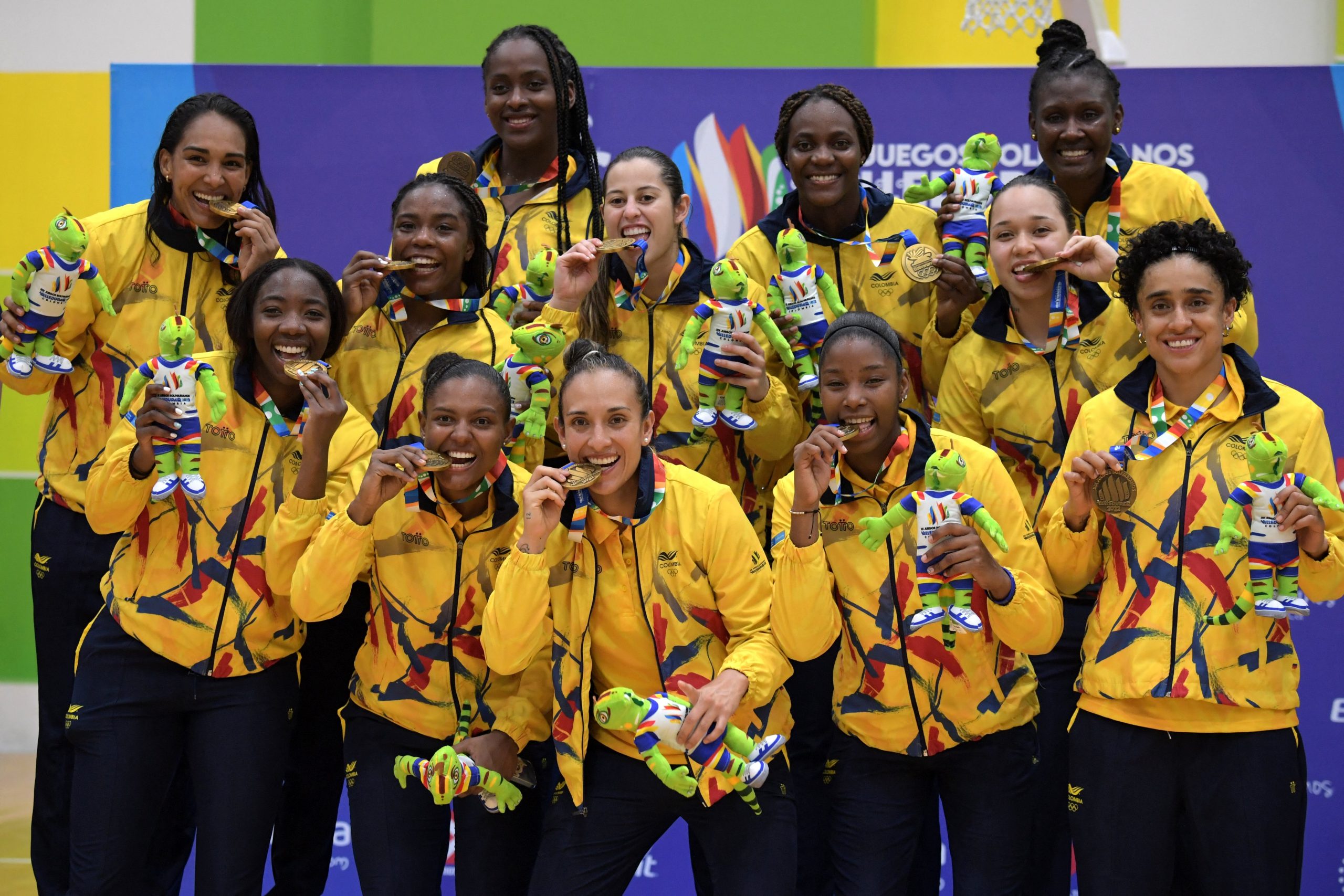
“A pro league for women would be a great start, but of course with that there needs to be people to buy into this league,” she says via a translator. “A lot of the women on the Colombian team, their dream is to get to an Olympics and to represent Colombia, and definitely giving an opportunity to women to have a league here.”
Photos by Andres Puerta and via Getty Images.
Check out our Latest News and Follow us at Facebook
Original Source

